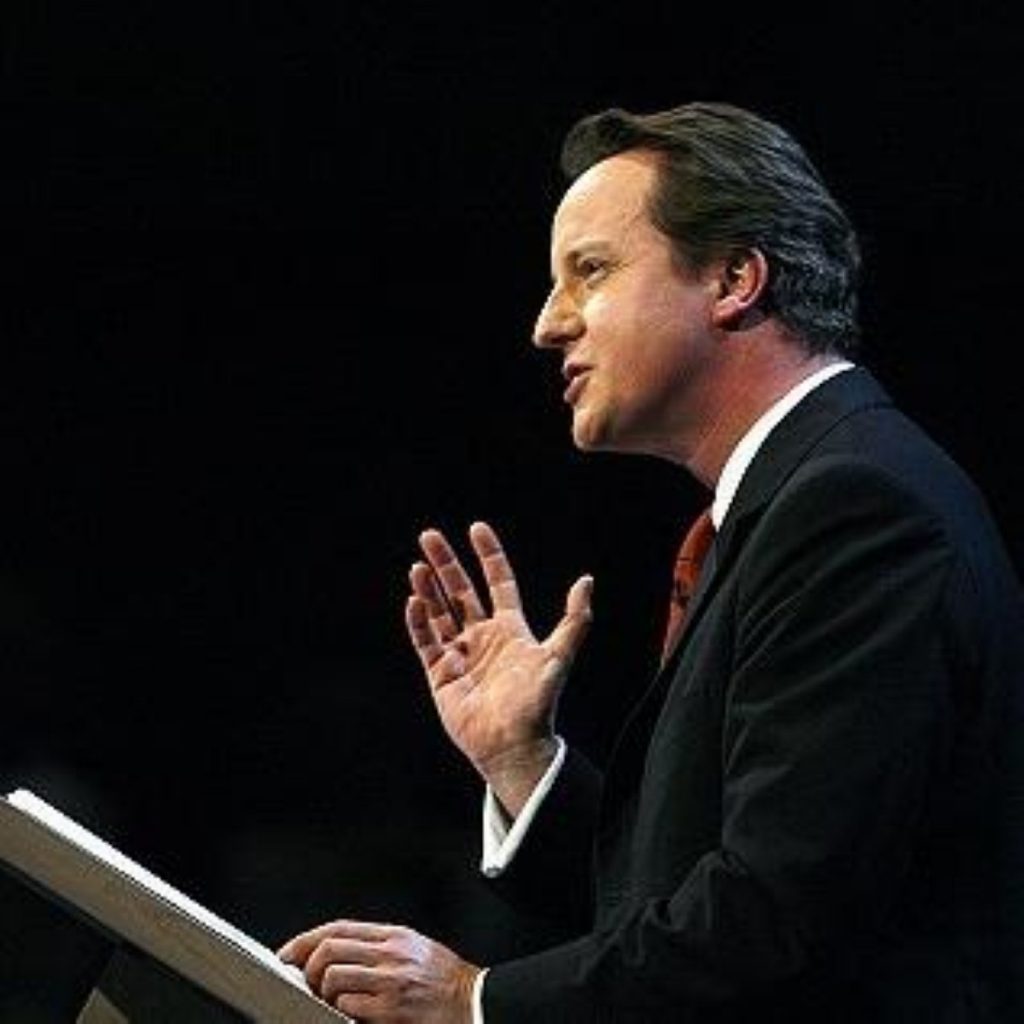Cameron speech: Analysis
David Cameron moved Britain several steps closer to a real ideological political debate with his carefully calculated speech to the Conservative party conference.
The Tory leader’s speech had been trailed as a response to Gordon Brown’s jibe that the financial crisis is “not the time for a novice”.
He met expectations here, condemning experience as an excuse for those who do not seek change. It’s a sensible prediction that the voters will prefer the latter after 11 years of Labour government. But it also has some serious undertones: change requires a choice to be laid before the electorate. David Cameron began laying out the outlines of that choice today.
His shift away from the attacks on the prime minister which have dominated the last three years represents a real change. It might seem placing the focus on ideological differences would be inevitable in a vision and values debate concentrating on “character and judgment”. Spreading the assault against the entire party, rather than just against the prime minister, represents a remarkable shift, however. As he put it: “It’s not the leader, it’s Labour.”


Mr Cameron moved significantly to the right in this respect as the whole concept of individuals v the state left the Tories shuddering. Mr Cameron deliberately allowed himself to get worked up over teachers needing first aid officers to put plasters on pupils. He railed against the “useless quangos and initiatives” set up by the left. And he allowed his disgust to show about a letter from Alan Johnson explaining the complaints procedures after one of his constituents died of MRSA. “My God,” he exclaimed. There was no such animation from the prime minister last week.
The Tory leader may find himself open to hostility of emotional manipulation from those naturally opposed to his politics. But the Tories themselves loved it, for this was a Mr Cameron who seemed more at ease than ever before with the gut instincts of the old-school Conservative party. “This whole health and safety, human rights culture, has infected every part of our life,” he hissed. This was a speech fundamentally opposed to the basic impulses of the left; by taking on Labour Mr Cameron began to put some distance between the Tories and Britain’s governing party.
As a result it was no surprise when the “progressive ends, Conservative means” phrase was rolled out. With a pre-conference polling cushion of up to 20 per cent Mr Cameron can afford to slow down his assault on the central ground previously occupied by New Labour. Somehow it is now reconcilable with more firmly right-wing positions, as the Tories, renewed in confidence, apply their basic principles to the political system they face.
It is not yet clear how this move will play with voters. A politics.co.uk poll conducted during the conference season found around three-quarters of respondents believe the Tories will be the big winners but, if Mr Cameron has made a misjudgement, today might just change this. It was certainly the best of the season in terms of delivery. Nick Clegg’s inexperience and Gordon Brown’s lack of panache were both trumped. This may play either way, however, for Mr Cameron’s effort is likely to have the most powerful impact as a result.
In laying down his values, his vision, his judgment, Mr Cameron gave voters a clearer picture than ever before of the type of Conservative government they could expect. The negative attitude to Britain’s “broken society”, the commitment to the family and the horror at left-wing interventionism all remain. At the same time the Tories are the “party of the NHS” and the “party of social justice”, but – as Mr Cameron demonstrated today – the means through which the goals are achieved are very different from those of Labour.
It might have been thin on policy announcements, but today Mr Cameron laid out more clearly than ever before what the 21st century Tories are about. After years of blurred politics concentrating on personality the return of a real and substantial political divide may have just begun.
Alex Stevenson









